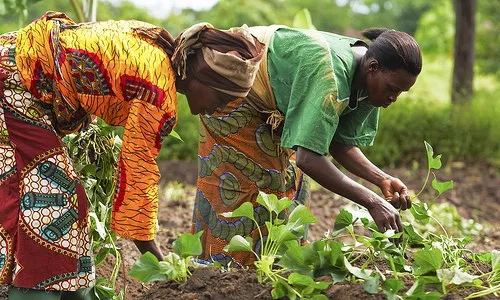
Strategise to address gender inequalities in agric sector
A study on the impacts of climate variability (CV) has recommended that government policy addressing climate change (CC) in the agriculture sector should identify and implement options for each unique climate distress event that will reduce variability of the different gender groupings.
It revealed that the CC adapted strategies practised by both males and females in the households were below 50 per cent.
Advertisement
There is growing evidence that climate change poses significant risks to agric, especially to smallholder farmers.
Already, there is evidence of the direct manifestations of CC in Ghana; increasing temperatures and rainfall variability. This impacts various sectors of the socio-economic structure, especially, with its reliance on sectors that are particularly sensitive to CC; agric, forestry and energy production.
A Research Scientist at the CSI-STEPRI, Ms Mavis Akuffobea, who presented the report at a dialogue in Accra on "Gender Equity/Inequity and Responsiveness to Climate Smart Agriculture," said some of the adaptation strategies practised include increased land size, change in crop variety, crop type and planting days, tree planting on farms, soil and others.
"CV has affected everybody in the community, yet gender differences exist. There is the need for gender livelihoods strategies to address issues of CC," she stated.
Highlights of the study
The study was conducted on the "Gendered Impacts of Climate Variability on Community Livelihoods in Protected Areas; A Case or Rural Communities in Agogo, Asante Akim North District of Ghana."
The dialogue
The dialogue was under the auspices of the Sustainable Agriculture Intensification Research and Learning Africa (SAIRLA) Ghana National Learning Alliance (GH-NLA), working with relevant stakeholders to identify the different policies and mechanisms that could provide smallholder farmers, including women and young people, better access to resources and information relating to Sustainable Agriculture Intensification (SAI).
The Deputy Director of the Women in Agriculture Development Directorate (WIAD) at the Ministry of Food and Agriculture, Ms Paulina Addy, said it was important to look at the actors along the agric chain in the various strata and that they needed to see them in the micro, small, medium and large scale space because their needs were different.
She said smallholder farmers, who were mostly women, needed to be given stability because they were the hardest when it came to CC impact.
"We must focus on the smallholders and intervene so that they can give us optimum yields and income. We need to think about CC impact from a gendered perspective so we can create awareness for policy," she said.
Recommendations
Ms Akuffobea stated the need to have policy and investment decisions to promote and facilitate increased adaptation towards CV at both the household and community levels.
"Government, private sector and the development actors can invest in appropriate irrigation, water harvesting and reservoir scheme that can help to mitigate the effect of drought for the benefit of poor smallholder farmers, she added




